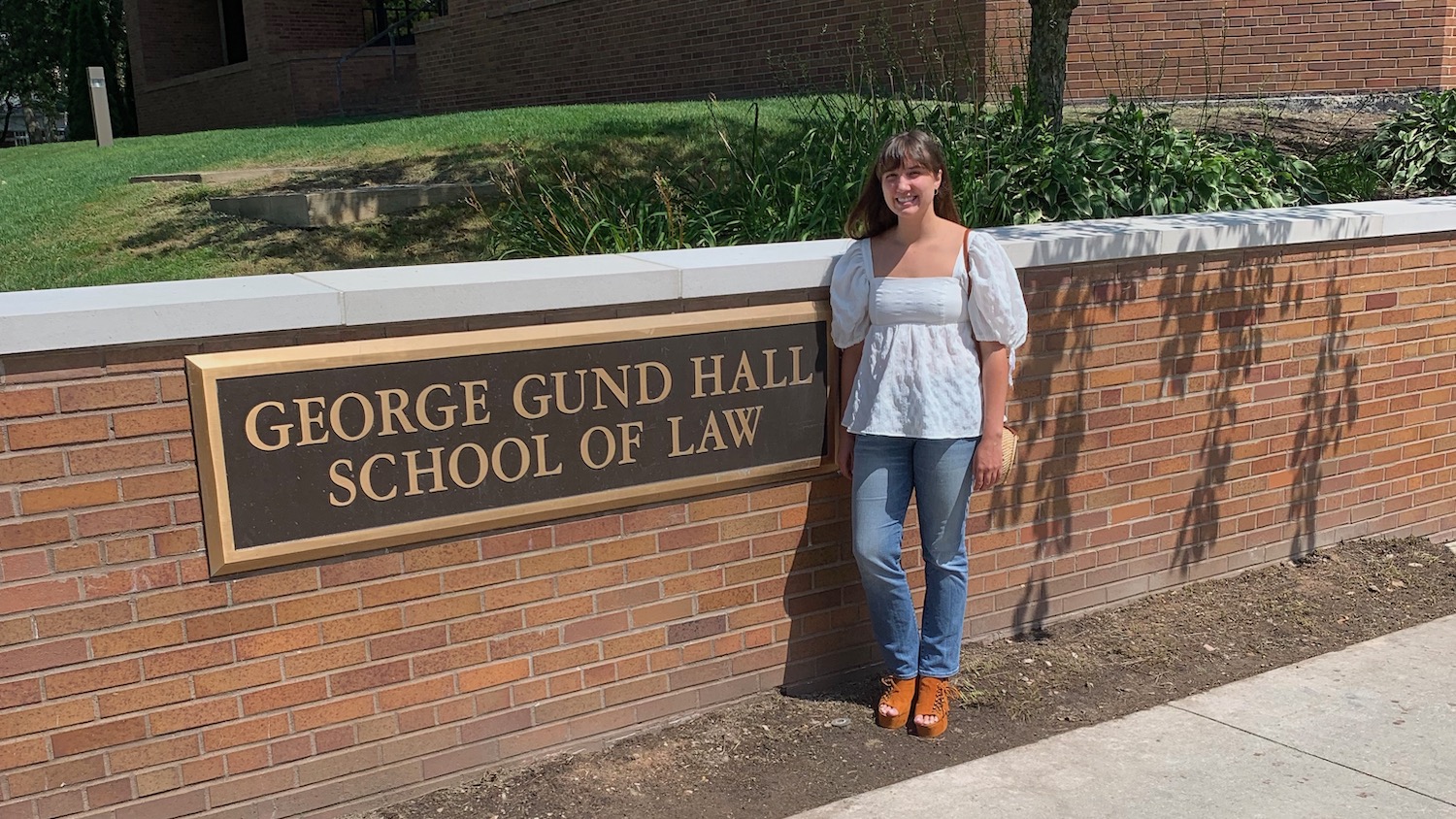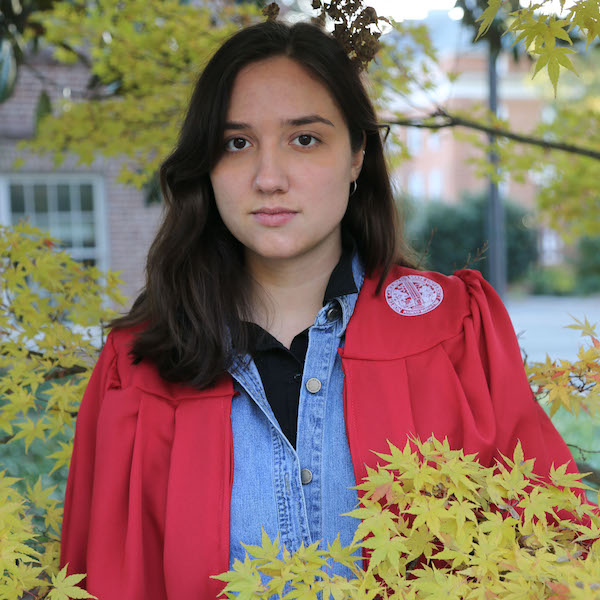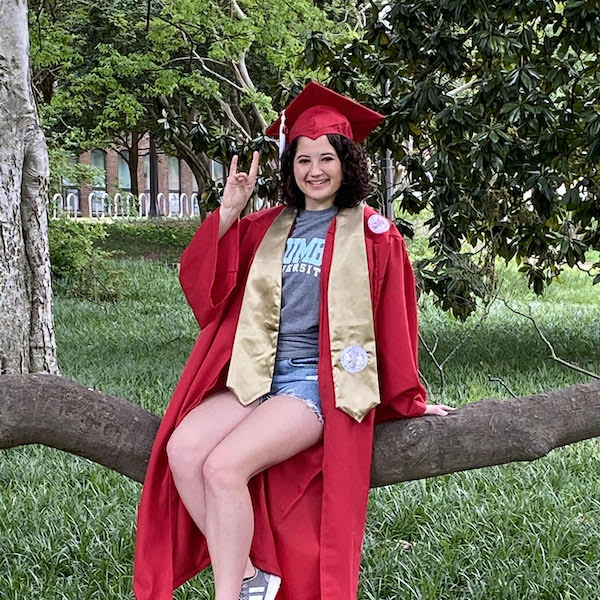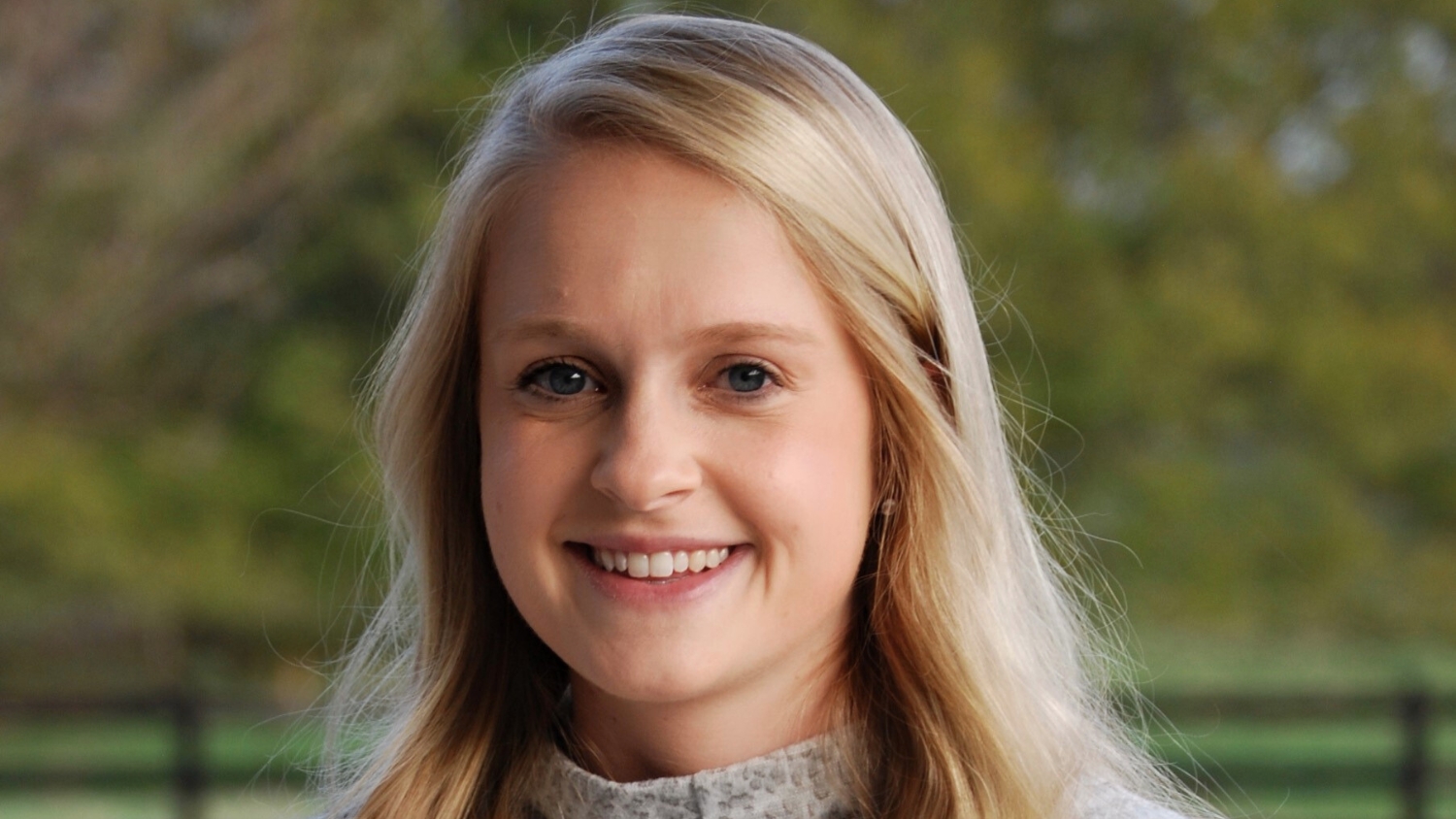Poole Prepares Students for Law School Success
When most individuals think of appropriate undergraduate majors to prepare them for law school, English and political science are usually the two that come to mind. However, more law school admissions officers are seeking qualified candidates with a different background – one in business.

By Caroline Barnhill
“I have heard more law school admissions officers over time lament the fact that while the bulk of their placements are in business-oriented law firm settings, their students don’t have strong business backgrounds,” explains John C. Kuzenski, J.D., Ph.D., who teaches Poole College’s business law course.
“Consider a firm like North Carolina’s own Womble Bond Dickenson, now a huge international law firm – virtually all of their work is transactional or trial defense for big corporate clients. When they are working with these clients, it is a challenge if their attorneys or paralegals don’t have the business acumen to understand things like supply chains or even the basics of human resources. Law schools these days love to see qualified student applicants with business backgrounds. I try to give our students a leg up by giving them a good head start on a basic law background, too.”
Law schools these days love to see qualified student applicants with business backgrounds. I try to give our students a leg up by giving them a good head start on a basic law background, too.
It’s one of the reasons why Kuzenski is passionate about working with students within his MIE 305 – Legal and Regulatory Environment of Business – course (nicknamed “business law”) who approach him with the idea of going to law school after graduation, or who have questions about what they could do with their interests in both management and law.
“I think, generally, when business students think of advanced degrees, they think of the MBA – which is the golden fleece of the business world,” Kuzenski says. “I try to tell option-curious students that if they enjoy the content in MIE 305, law school might be a great choice for them, too. My 305 course is essentially a condensed and simplified undergraduate version of the core subjects they’d be learning as a first-year law student. It’s aimed at a future businessperson audience of course, but the terms, rules and concepts are also a head start for deeper learning about law.”
Business law has a reputation for being one of the hardest undergraduate courses in the college, which is why Kuzenski makes sure to begin each semester reminding his students that not only is the course survivable – but if they apply themselves and give it a chance, they might find out they really enjoy the content, as a growing number remark they do in evaluations and emails at the end of the semester.
Even if they choose not to pursue a legal career, it is critical for individuals going into business to understand some basic legal concepts.
“Even if they choose not to pursue a legal career, it is critical for individuals going into business to understand some basic legal concepts. We discuss business organization structures, tort risks, regulatory compliance, the basic elements of good, secure contracts and more – topics most of them will encounter regularly during their professional careers. I know some students think it’s too tough or come in scared- some certainly have opinions of the class that I probably don’t want to hear,” he laughs. “But a majority every semester get it, and get good final grades. I owe every student in MIE 305 my best effort to give them something in a subject they’ve probably never had before that they can use regularly in the real business world. It can protect them or their businesses; they can succeed and flourish. If I just had them tick some boxes about simple definitions on a test to get through the course without caring if they were learning meaningful stuff, I wouldn’t be doing my job.”
It doesn’t surprise Kuzenski that several of his students who walk into MIE 305 with some trepidation leave with a newfound interest in the law. In fact, Poole College of Management has an excellent track record of placing qualified students into the nation’s top law schools.
Let’s meet some of them…

Alexa Shook ‘18
Alexa Shook grew up in Toledo, Ohio, but her desire to move to North Carolina led her to NC State and the Poole College of Management. She didn’t begin her undergraduate career with her sights on law school – instead, she pursued an accounting degree and planned to go into the Peace Corps after graduation.
When she received notification in May 2018 that she was accepted into the Peace Corps, her immediate reaction wasn’t the one you may have expected. Instead of jumping at the opportunity to pursue the path she had planned to take, instead she thought, “What if I went to law school instead?”
“Needless to say, I declined my invitation to serve in the Peace Corps, sat for the LSAT and applied to law school,” Shook says.
Today, Shook is a second-year law student at Case Western Reserve University School of Law, where she is a recipient of the school’s Law and Leadership Scholarship.
She looks back on her time at Poole College and credits Dr. Kuzenski’s business law course as some of the best preparation she could have received for law school.
“His class touches on so many of the concepts that you delve into your first year of law school and he does a really good job giving students a general overview of complex concepts that you can really get down into the weeds with,” Shook says. “And of course, Dr. Kuzenski himself is an excellent resource. I was in contact with him throughout the entire process of applying to law school and he always took the time to give me advice for how to proceed.”
She also believes her accounting background has given her a leg up in many of her courses at Case Western.
I cannot emphasize enough how useful a business––and particularly, an accounting––background is in law school.
“I cannot emphasize enough how useful a business––and particularly, an accounting––background is in law school. Many of my classmates come from liberal arts backgrounds and they struggle in classes where having a business mindset helps you understand the subject – for example, contracts,” she says. “In particular, I am currently in a Federal Income Tax class, and much of the class thus far has been a review for me thanks to Professor Dirienzo’s tax class.”
Currently Shook is interested in practicing tax law. This past summer, she worked as a judicial intern in the U.S. Court of Appeals for the Federal Circuit. She also has served as a research assistant for her contracts professor, and currently serves as the teacher’s assistant for her contracts class, as well as associate editor for the Case Western Reserve University Law Review Vol. 71.
“I was so happy to learn of Alexa’s judicial internship with the Court of Appeals,” Kuzenski says. “That’s quite a plum in the legal world, particularly since that court deals with major intellectual property appeals from some huge multinational corporations among others.”
After graduating from law school, Shook plans to either head into private practice or aim for a clerkship. Either way, she feels her time at Poole will prepare her for whichever path she pursues.

Leah Dorn ‘20
Before attending NC State for undergrad, Leah Dorn had considered and dismissed the idea of going to law school. It was not until Dr. Kuzenski’s business law class her sophomore year that she began to sense it might be the right path for her.
“Even though I was in the 8:30 a.m. section, I was always wide awake and excited for this class,” Dorn, who was also an NC State University Scholar, remembers. “The material just made perfect sense to me and the logical reasoning about it all worked well in my brain. As a child, I never had an answer when people asked me what I wanted to do when I grew up. During my first year of college I found a lot of things I knew I did not want to do, but when I considered the legal field again, something clicked and I just knew in my bones it was where I was meant to be.”
After Dr. Kuzenski’s class, Dorn added a political science major alongside her major in business administration with a concentration in financial management, and began taking classes related to law. She also sought out a job at a local law firm where she ended up working from May 2018 to May 2020.
“Beyond my business law class, which gave me a good overview of what concepts a first-year law student would cover, I think the greatest influence Poole College had on me was teaching me to think in a global perspective,” Dorn says. “Global views of business are integrated into the entire Poole program, but I was able to expand on this further with a class in international finance my senior year which I greatly enjoyed. I believe that it was my capstone finance classes my senior year that have inspired me to focus on international business law in my legal studies.”
Beyond my business law class, which gave me a good overview of what concepts a first-year law student would cover, I think the greatest influence Poole College had on me was teaching me to think in a global perspective.
After receiving several full-ride offers from top-tier law schools, this August, Dorn started her first year at Columbia Law School – complete with a $120,000 scholarship. She is currently taking all of her classes online from Honolulu, Hawaii, where she worked over the summer. Dorn plans to move to New York City in January as the city starts to open up.
Dorn is thankful for her time at Poole College of Management, which has aided her in approaching issues with an analytical thought process – something that doesn’t come as naturally to her peers with humanities backgrounds.
“The form of training we get as business students teaches us to pinpoint the root of something and get straight to the point which is very useful in legal thinking. As a law student, I have found that legal writing bears a much greater resemblance to the types of analysis and writing we were asked to perform at Poole rather than the more flowery, academic writing we are taught to use in the humanities,” Dorn says. “Additionally, I think my education in financial and economic disciplines through Poole gives me an entirely new perspective and way of thinking about legal problems. Just the fact that I am comfortable with math puts me at a big advantage to a lot of law students. Lastly, as someone who wants to pursue business law, it would typically be expected that I also get an MBA or at least take some classes from the business school. This extra time and effort is not necessary for me already having a business background and understanding.”

Megan Coates ‘18
Megan Coates started her collegiate career at Poole College of Management not knowing where her interests and skills would lead her but trusting she was in the right place to explore all the options before her.
Coates took advantage of every opportunity – she served as an NC State Alumni Ambassador, PCOM Peer Leader, member of Chi Alpha Christian Fellowship and a founding member and treasurer of Women in Business at NC State. Academically, she pursued a degree in business administration with a concentration in supply chain management. By her sophomore year, after a course in the history of English common law, the idea of law school came into focus.
“I wasn’t really expecting to, but I loved the class. It opened my mind to how lawyers could really make a difference in society,” Coates remembers. “To test and see if this was really something I wanted to pursue, I took several undergraduate law courses – free speech, international law and business law. Taking those courses confirmed that I wanted to be a lawyer and built my confidence that it was something I could do. I also worked as a teaching assistant for Dr. Kuzenski, which also affirmed my decision to go to law school.”
Taking those courses confirmed that I wanted to be a lawyer and built my confidence that it was something I could do.
Today, Coates is a second-year law student at the University of North Carolina at Chapel Hill, where she is a Merit Scholar, staff member of First Amendment Law Review and a competing executive member of the Holderness Moot Court Intellectual Property Team. Also, she is the treasurer of the Christian Legal Society at UNC Law, and – as a first-generation professional student – a mentor for 1Ls (first-year law students) in the First Generation Professionals program at Carolina Law.
She credits several courses at Poole for preparing her for law school. Kuzenski’s business law course allowed her to research legal topics and think critically about the law – something she does in law school every day – and armed her with a core understanding of legal concepts.
“The purchasing course (strategic sourcing) with Professor Tracy Freeman prepared me for law school as well. Professor Freeman emphasized the importance of writing with clarity and concision. She also encouraged us to think critically about sourcing decisions and go beyond expectations with our research,” Coates says. “Overall, Professor Freeman was a great professor and mentor for me while I was at Poole. She advised me on my supply chain practicum project, and she really taught me how to be a professional and how to speak up. Those transferable skills have really helped me both in law school and in my legal internship.”
Beyond her professors, Coates is thankful for Poole academic advisors – especially Megan Van Hook – for their support and encouragement in helping her understand the best options for her future in the legal field, and how to choose courses accordingly.
“The rigor of the business program, in general, prepared me for law school. Classes in logistics and business processes were not second nature to me. Working hard to understand that material and figuring out what questions to ask helped me prepare for law school,” she says. “My business background gives me an understanding of what is happening behind the scenes in cases that I read in law school.”
This summer, Coates interned for Judge Phil Berger, Jr. on the NC Court of Appeals. After law school, Coates hopes to clerk for a judge and then work at a firm litigating intellectual property matters.
- Categories:


